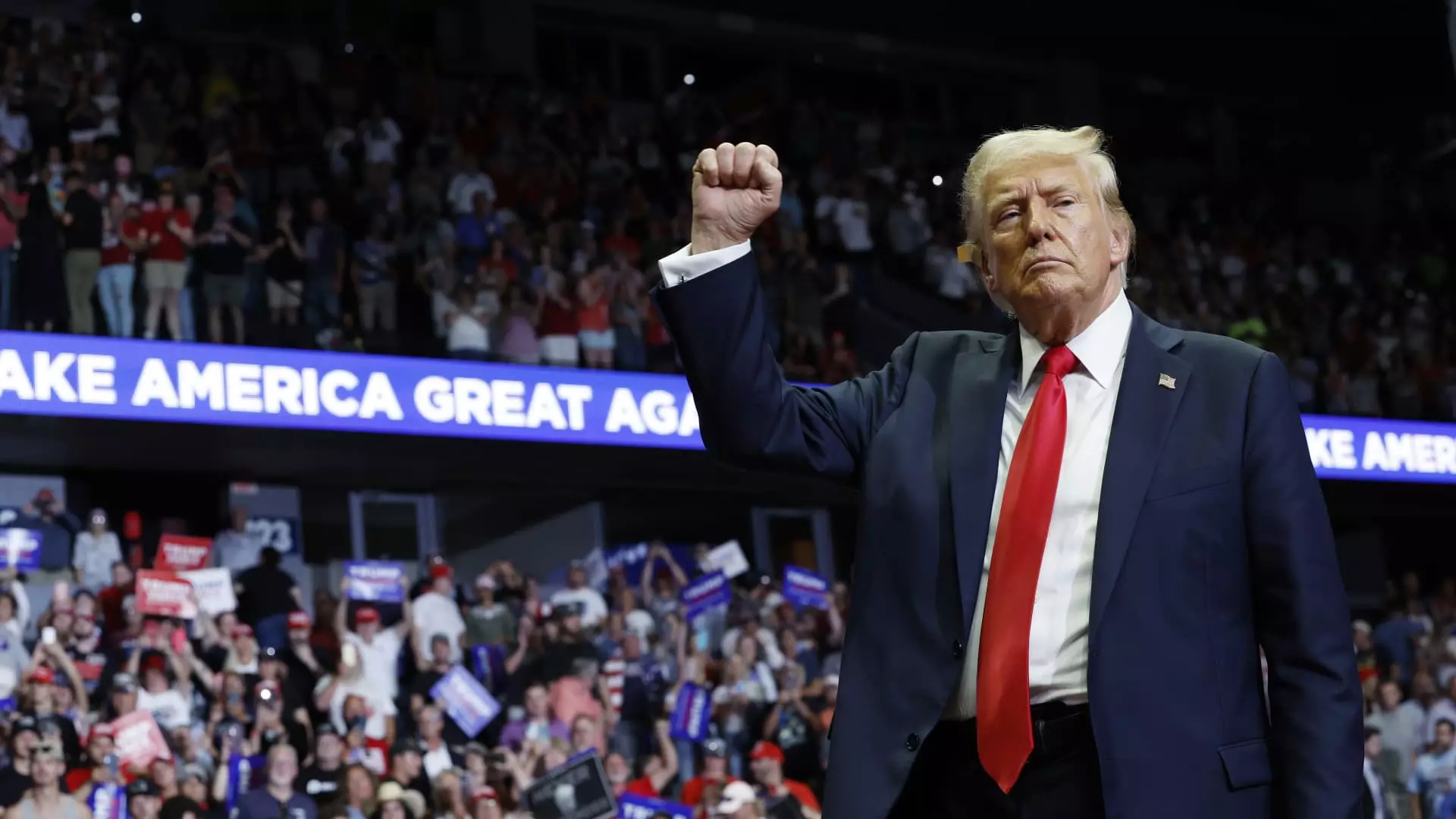Donald Trump’s upcoming appearance at the biggest bitcoin conference of the year marks a stark shift from his previous stance on cryptocurrencies. Despite openly criticizing bitcoin during his time in the White House and expressing skepticism towards its legitimacy, Trump is now embracing the digital asset space. This change in position is reflective of the growing influence of the crypto contingent in American politics and their potential impact on the 2024 presidential contest.
The decision to headline a bitcoin conference and host a fundraiser at such an event underscores the political significance of the cryptocurrency sector. As both parties vie for the support of fintech adopters and tech elites, the race to capture votes and campaign cash from this community is becoming increasingly prominent. With the Republican Party aiming to leverage crypto regulation as a key issue in the upcoming election, the Democratic Party faces the challenge of responding to the growing influence of digital asset advocates.
Despite Trump’s newfound support for the crypto community, there are concerns about the potential politicization of the issue. Democratic lawmakers like Rep. Wiley Nickel emphasize the need for bipartisan cooperation on crypto regulation and warn against allowing partisan politics to overshadow the legitimate concerns of digital asset supporters. The involvement of high-profile figures like Vice President Kamala Harris and entrepreneur Mark Cuban further highlight the complexity of navigating the intersection of technology and politics.
The recent surge in interest and financial contributions from top tech talent to the Trump campaign underscores the evolving landscape of political fundraising. Notable figures like the Winklevoss twins, Marc Andreessen, Ben Horowitz, and David Sacks have all pledged significant amounts to support Trump’s re-election efforts. Additionally, the rise of pro-crypto super PACs like Fairshake indicates a broader trend of tech elites aligning themselves with candidates who prioritize digital innovation and regulation.
The active engagement of the tech community in political fundraising and advocacy further blurs the lines between traditional political support bases and emerging industries. Vice President Harris’s efforts to connect with crypto companies and undecided tech donors reflect a recognition of the growing influence of these sectors in shaping electoral outcomes. Moreover, Harris’s longstanding ties to the tech industry in California suggest a potential realignment of political support as the Democratic Party consolidates its platform ahead of the election.
Donald Trump’s upcoming appearance at the bitcoin conference underscores the shifting dynamics of political engagement in the digital age. The intersection of technology, finance, and politics presents new opportunities and challenges for both parties as they seek to attract support from the rapidly evolving tech sector. The implications of Trump’s embrace of the crypto community and the responses from other political leaders highlight the complexity of navigating the intersection of innovation and governance in the 21st century.

